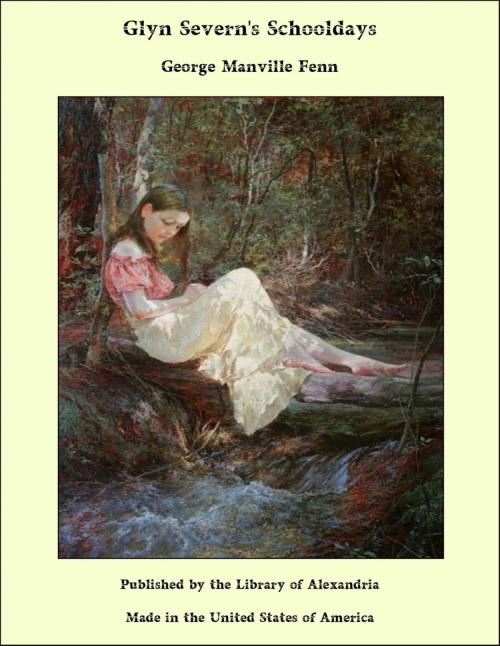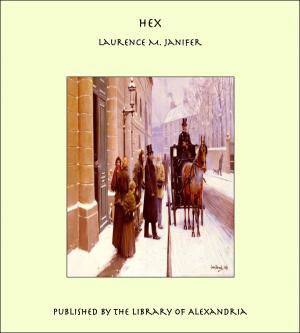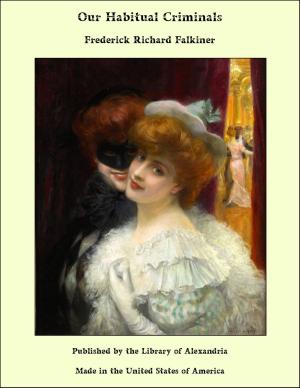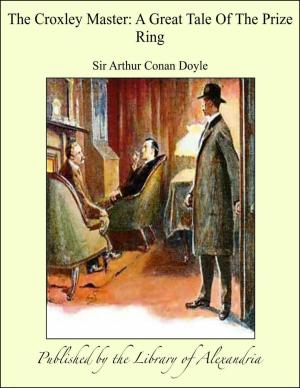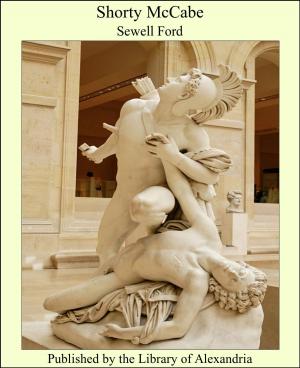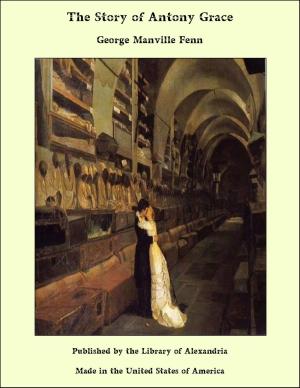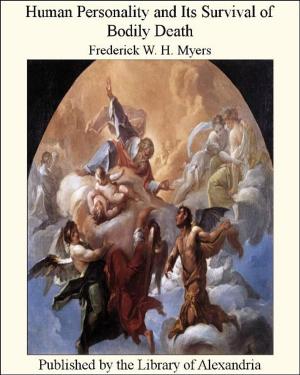Glyn Severn's Schooldays
Nonfiction, Religion & Spirituality, New Age, History, Fiction & Literature| Author: | George Manville Fenn | ISBN: | 9781465621252 |
| Publisher: | Library of Alexandria | Publication: | March 8, 2015 |
| Imprint: | Language: | English |
| Author: | George Manville Fenn |
| ISBN: | 9781465621252 |
| Publisher: | Library of Alexandria |
| Publication: | March 8, 2015 |
| Imprint: | |
| Language: | English |
Slegge said it was all “bosh;” for fifty years ago a boy at school had not learned to declare that everything which did not suit his taste was “rot.” So Slegge stood leaning up against the playground wall with a supercilious sneer upon his lip, and said it was all “bosh,” and only fit for children. The other fellows, he said, might make idiots of themselves if they liked, he should stop in and read; for Dr Bewley, DD, Principal of the world-famed establishment—a grey, handsome, elderly gentleman in the truest sense of the word—had smilingly said after grace at breakfast that when he was a boy he used to take a great deal of interest in natural history, and that he presumed his pupils would feel much the same as he did, and would have no objection to setting aside their classical and mathematical studies for the morning and watching the entrance of the procession when it entered the town at twelve o’clock. The boys, who were all standing and waiting for the Doctor to leave the dining-hall, gave a hearty cheer at this; and as the ragged volley died out, after being unduly prolonged by the younger pupils, instead of crossing to the door from the table, the Doctor continued, turning to the mathematical master: “I think, Mr Morris, you might be kind enough to tell Wrench to get the boy to help him and place a line of forms by the wall, so that the young gentlemen can enjoy the privilege of having a prolonged private box above the crowd; or, shall I say, a high bank in this modern form of the classic amphitheatre?” “Hear, hear!” said Mr Rampson, the heavy, solid-looking classical master, impressed by the Principal’s allusion to the Roman sports; and he grumbled out something in a subdued voice, with his eyes shut. What it was the boys did not hear, but it was evidently a Latin quotation, and ended in ibus. The Doctor then marched slowly towards the door, with his black gown floating out around him, and carrying his mortar-board cap by the limp corner; for while everything about him was spick and span—his cravat of the stiffest and whitest as it supported his plump, pink, well-shaven chin, and his gown of the glossiest black—a habit of holding his college cap by its right-hand corner had resulted in the formation of a kind of hinge which made the University headpiece float up and down in concert with his stately steps as he turned his head from side to side and nodded benignantly at first one and then another of his junior pupils. The masters followed, looking very severe indeed; and, following the example set by Mr Morris, they all frowned and shook their heads at the great waste of time that would follow the passing of the procession. “So childish of the old man,” said Morris to the French master, Monsieur Brohanne, a particularly plump-looking Gaul. “The boys will be fit for nothing afterwards.”
Slegge said it was all “bosh;” for fifty years ago a boy at school had not learned to declare that everything which did not suit his taste was “rot.” So Slegge stood leaning up against the playground wall with a supercilious sneer upon his lip, and said it was all “bosh,” and only fit for children. The other fellows, he said, might make idiots of themselves if they liked, he should stop in and read; for Dr Bewley, DD, Principal of the world-famed establishment—a grey, handsome, elderly gentleman in the truest sense of the word—had smilingly said after grace at breakfast that when he was a boy he used to take a great deal of interest in natural history, and that he presumed his pupils would feel much the same as he did, and would have no objection to setting aside their classical and mathematical studies for the morning and watching the entrance of the procession when it entered the town at twelve o’clock. The boys, who were all standing and waiting for the Doctor to leave the dining-hall, gave a hearty cheer at this; and as the ragged volley died out, after being unduly prolonged by the younger pupils, instead of crossing to the door from the table, the Doctor continued, turning to the mathematical master: “I think, Mr Morris, you might be kind enough to tell Wrench to get the boy to help him and place a line of forms by the wall, so that the young gentlemen can enjoy the privilege of having a prolonged private box above the crowd; or, shall I say, a high bank in this modern form of the classic amphitheatre?” “Hear, hear!” said Mr Rampson, the heavy, solid-looking classical master, impressed by the Principal’s allusion to the Roman sports; and he grumbled out something in a subdued voice, with his eyes shut. What it was the boys did not hear, but it was evidently a Latin quotation, and ended in ibus. The Doctor then marched slowly towards the door, with his black gown floating out around him, and carrying his mortar-board cap by the limp corner; for while everything about him was spick and span—his cravat of the stiffest and whitest as it supported his plump, pink, well-shaven chin, and his gown of the glossiest black—a habit of holding his college cap by its right-hand corner had resulted in the formation of a kind of hinge which made the University headpiece float up and down in concert with his stately steps as he turned his head from side to side and nodded benignantly at first one and then another of his junior pupils. The masters followed, looking very severe indeed; and, following the example set by Mr Morris, they all frowned and shook their heads at the great waste of time that would follow the passing of the procession. “So childish of the old man,” said Morris to the French master, Monsieur Brohanne, a particularly plump-looking Gaul. “The boys will be fit for nothing afterwards.”
